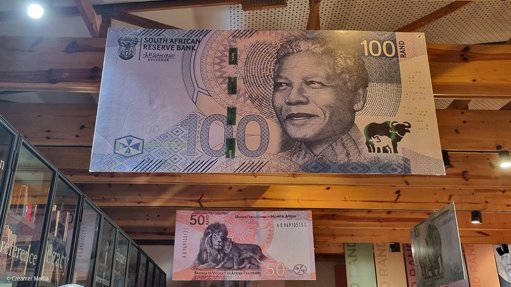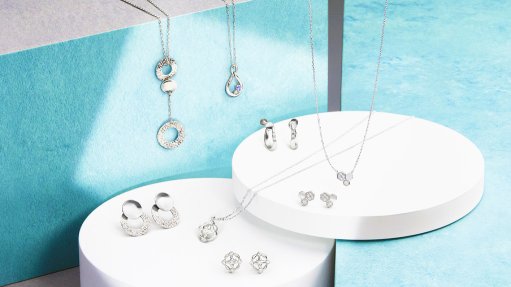Becoming an acoustics engineer
I am a qualified electrical engineer. There were 105 students in first year engineering when I enrolled at university (if you ask my staff, they will tell you this was shortly after the Manumission of the slaves and just before the great trek).
At the beginning of second year, the number had fallen to 60. Of these, four finished university in four years (I was not one of them) and 36 graduated after more than four years. The drop-out rate was thus 38% of those who started.
I did my final-year thesis in acoustics. The title of my thesis was ‘The acoustics parameters of the Baxter concert hall’.
The Baxter complex was built as a result of a bequest by Dr W Duncan Baxter. Apart from the fact that he was the mayor of Cape Town in 1908/9, there is not much known about him. The complex opened in 1976 and comprises a number of arts venues, one being the concert hall. The concert hall is not very big. I did my thesis in 1978. I had to measure the following acoustics parameters: reverberation time, flutter echoes, warmth and clarity. It would have been a good idea to measure the speech transmission intelligibility but, in 1978, this was not possible except in highly sophisticated laboratories.
My base of operations was the Central Acoustics Laboratory, which was in the engineering building. It was a very extensive facility and had wonderful instruments, all supplied by Bruel & Kjaer, of Denmark. The instruments were very well made but had one outstanding feature: they would still work after surviving a rocket attack and being dropped from a 32-storey building. They were bulky and heavy. Thus, while my fellow students partied and drank, I would load up my Ford Escort with filters, loudspeakers and instruments (the filters alone weighed the same as a sack of cement). The Ford was built to drive with the springs nearly flattened out, and, if I took it slow, the exhaust muffler just scraped over the speed humps on the road from the main university to the concert hall.
I would get set up in the hall by midnight and do tests until about 02:00. Then I would trundle back to the lab, offload and store the equipment and be home by dawn. It took a month to do the tests, a month to do the calculations and a month to write up the thesis. I had checked the university rules and they allowed handwritten theses to be submitted. I could not afford to have mine typed, so I handwrote all 54 pages of it.
The results were surprising – there was too much absorption in the hall and not enough echo. The hall was great for quartets, quintets and chamber music, but a dead loss for an orchestra, even a small one. It was great for Johnny Clegg who I saw perform there about 20 years later. But as a concert hall for concerts . . . nope. I diligently submitted my thesis and was given a second. Which was great.
Over the years, attempts have been made to improve the acoustics of the hall, but none have been very successful. I wanted to become a consulting acoustics engineer but I could not afford the equipment and, anyway, all the University of Cape Town (UCT) acoustics staff consulted on the side. They had a salaried income, free technicians and access to the lab equipment. I could not compete.
But the world turned. The Baxter concert hall is still there. I now run a consulting acoustics practice, one of very few in South Africa. I even have engineers who work here. The Central Acoustics Lab is no more. The UCT planners had it demolished, along with the reverberation chamber. They built offices. All the Bruel & Kjaer equipment has disappeared. The instrumentation now is incredibly advanced (and much lighter). The other day, our lead engineer had to go to the Baxter concert hall to do some floor vibration tests. I said to her: “Hey, while you’re there, just measure the reverberation time of the hall.” She did. With our modern instruments, it took her about ten minutes.
Article Enquiry
Email Article
Save Article
Feedback
To advertise email advertising@creamermedia.co.za or click here
Comments
Press Office
Announcements
What's On
Subscribe to improve your user experience...
Option 1 (equivalent of R125 a month):
Receive a weekly copy of Creamer Media's Engineering News & Mining Weekly magazine
(print copy for those in South Africa and e-magazine for those outside of South Africa)
Receive daily email newsletters
Access to full search results
Access archive of magazine back copies
Access to Projects in Progress
Access to ONE Research Report of your choice in PDF format
Option 2 (equivalent of R375 a month):
All benefits from Option 1
PLUS
Access to Creamer Media's Research Channel Africa for ALL Research Reports, in PDF format, on various industrial and mining sectors
including Electricity; Water; Energy Transition; Hydrogen; Roads, Rail and Ports; Coal; Gold; Platinum; Battery Metals; etc.
Already a subscriber?
Forgotten your password?
Receive weekly copy of Creamer Media's Engineering News & Mining Weekly magazine (print copy for those in South Africa and e-magazine for those outside of South Africa)
➕
Recieve daily email newsletters
➕
Access to full search results
➕
Access archive of magazine back copies
➕
Access to Projects in Progress
➕
Access to ONE Research Report of your choice in PDF format
RESEARCH CHANNEL AFRICA
R4500 (equivalent of R375 a month)
SUBSCRIBEAll benefits from Option 1
➕
Access to Creamer Media's Research Channel Africa for ALL Research Reports on various industrial and mining sectors, in PDF format, including on:
Electricity
➕
Water
➕
Energy Transition
➕
Hydrogen
➕
Roads, Rail and Ports
➕
Coal
➕
Gold
➕
Platinum
➕
Battery Metals
➕
etc.
Receive all benefits from Option 1 or Option 2 delivered to numerous people at your company
➕
Multiple User names and Passwords for simultaneous log-ins
➕
Intranet integration access to all in your organisation


















